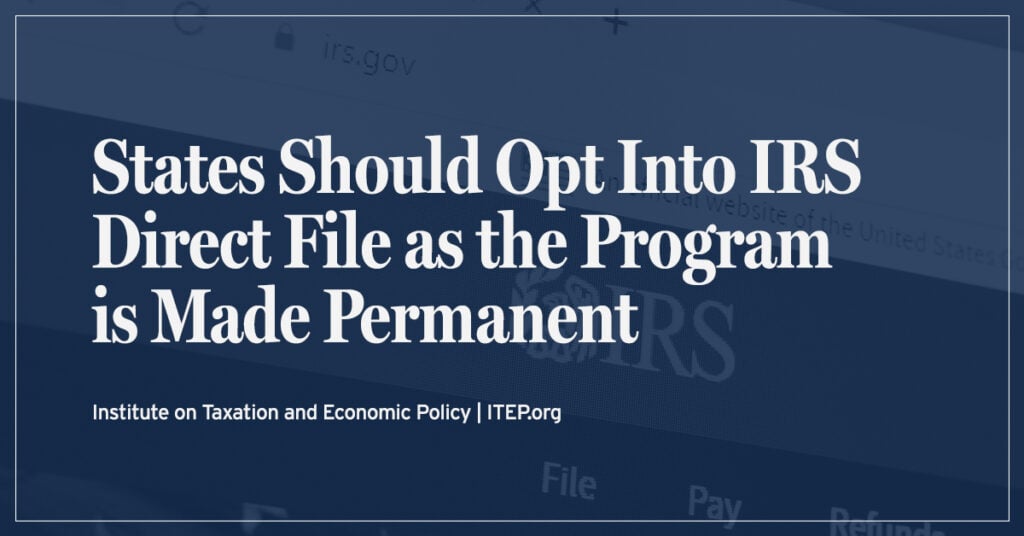This week, it was the best of times or, in some cases, the worst of times for tax policy in two different states. Vermont has taken a big swing at fossil fuel companies by becoming the first state in the nation to require them to contribute to a superfund that will go toward paying for damages caused by climate change and the creation of climate adaptation projects. However, the new law is expected to face swift legal challenges. Hawaii enacted what are being described as its largest income tax cuts in state history, estimated to cost $5 billion in total once phased in by 2031. While proponents of the law say that the changes will be a boon to working-class families, the drastic fully phased in $1.4 billion annual revenue loss will surely impact key priorities that Hawai’i residents enjoy and rely upon.
Major State Tax Proposals and Developments
- HAWAII Gov. Josh Green signed into law a large state income tax cut. The law, which is estimated to result in more than $5 billion in lost revenue by 2031, once fully phased in, will alternate increases to the standard deduction and adjustments to income tax brackets. An ITEP analysis found that 42 percent of the overall benefits from the cuts would go to the top 20 percent of earners who, on average, earn $304,000 a year. – MILES TRINIDAD
- VERMONT became the first state in the nation to require fossil fuel companies to pay a share of the damage caused by climate change and for climate adaptation projects. The law comes after the state suffered from catastrophic summer flooding. Gov. Phil Scott allowed the bill to become law without his signature. Scott acknowledged that there will likely be a legal fight against oil companies, but something must be done to address climate change. – MILES TRINIDAD
State Roundup
- ALABAMA Gov. Kay Ivey signed into law a bill that caps yearly property tax increases at 7 percent for both residential and commercial properties. The legislature will have to re-approve the bill every five years due to a sunset provision.
- The CALIFORNIA state Senate rejected a bill that would have ended about $1 billion in controversial special sales tax deals used to give large retailers significant tax breaks. The bill attracted a bipartisan coalition of 17 Senators in favor. While only 11 Senators went on record in opposition, another 12 abstained, which resulted as a “no” vote.
- Residents of the city of South Lake Tahoe CALIFORNIA are debating a proposed vacancy tax of $6,000 for owners of homes that are unoccupied for half the year. About 40 percent of the housing units in the town are used as vacation homes or rentals and are empty most of the year. Proponents argue the effort will help city—a popular mountain resort destination—stay affordable for its residents, who earn a median of about $68,000. Home prices in the town have tripled over nine years: From $345,000 in 2012 to $950,000 in 2021.
- CONNECTICUT looks to be headed toward a special session where lawmakers hope to address how vehicles are assessed. Options include full elimination of the car tax or HB 5172, which adds a depreciation schedule and a car tax cap.
- HAWAII Gov. Josh Green signed legislation that exempts medical and dental services provided to patients who receive Medicare, Medicaid, and TRICARE benefits from the state’s general excise tax.
- KANSAS lawmakers will start their special session on taxes in two weeks. Here’s an overview of how they and Gov. Laura Kelly got to this point and what to expect when they convene.
- MASSACHUSETTS lawmakers in the House will soon vote on a revised version of Gov. Maura Healey’s housing bond bill that does not include the proposed local-option real estate transfer tax on high-value homes. The bill does, however, include tax credits to help cover development costs for cities and towns looking to convert commercial properties into multi-family or mixed-use residential properties.
- A year after passing the most expansive state child tax credit in the nation, MINNESOTA has set up a structure for periodic payments. Qualifying families can get an advance on 50 percent of their child tax credit before tax filing season starting in 2025.
- MISSOURI voters will vote on whether to authorize an exemption of child-care facilities from property taxes in the state’s August 6th primary.
- NEW YORK Gov. Kathy Hochul is working to delay implementation of the congestion pricing plan that is scheduled to take effect at the end of this month. The plan would raise additional transportation funds for New York City through a charge on commuters into Manhattan.
- Lawmakers in WEST VIRGINIA still don’t know what the state’s income tax rate will be in 2025, and are struggling to plan financing key programs, especially related to childcare. This is thanks to a state law authorizing automatic cuts to its personal income tax, which triggers when general revenue goes above an inflation adjusted target.
What We’re Reading
- The Off The Charts blog explains the troubling recent trend of states expanding or enacting private school voucher systems while also passing untargeted property tax cuts – and how prioritizing public-school investments and targeted property tax reductions instead is better for students, communities, and economic and racial justice.
- ITEP’s Jon Whiten argues that states should opt into the now-permanent IRS Direct File program to save their residents headaches and money.
If you like what you are seeing in the Rundown (or even if you don’t) please send any feedback or tips for future posts to Aidan Davis at [email protected]. Click here to sign up to receive the Rundown via email.





